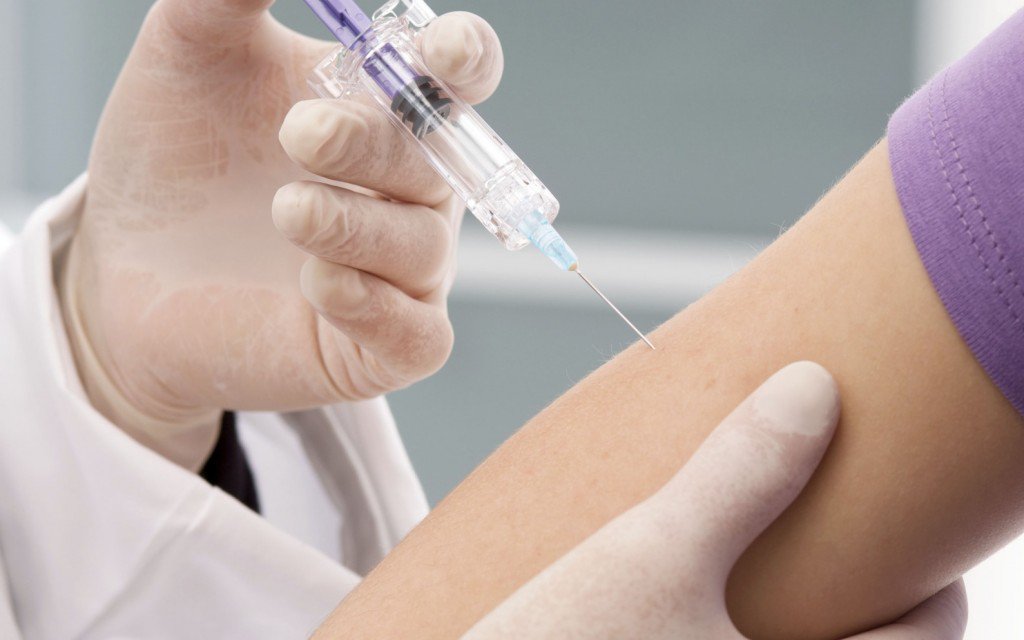Tetanus is a very rare yet serious disease caused by the Clostridium tetani. Tetanus infection happens when the bacteria gets into the boy through cuts, puncture wounds or deep scrapes; this is especially possible when the wound is dirty, as the bacteria lives in soil, manure and even dust. When the bacteria invade the body, it can produce a toxin that leads to many dangerous symptoms, including severe muscle spasms of the neck, abdomen, stomach and arms and legs.Keep in mind that up to 10%-20% of those who develop tetanus will die from it. Keep reading to find more about tetanus.

When to Get a Tetanus Shot
If you have been inflicted with a dirty wound–such as cutting your arm on a rusty piece of metal or stepping on a nail–you might be open to developing tetanus. A shot must be given within 24-48 hours in order to protect you from the infection. Besides, wound cleaning is also essential. How do you know if you need a tetanus shot? The rule of thumb is to get a shot after you have suffered certain injuries. These might include:
- Puncture wounds, such as those caused by animal bites, wood splinters, glass shards, nails, needles and the like
- Second-degree or third-degree burns
- Any wound that hasnecrotic or dead tissue
- Any injury that crushes a body part–for example, an accident in which a heavy block is dropped on the leg
- Any wounds that are visibly contaminated, or that have pieces of foreign objects imbedded inside, such as splinters andgravel
In addition, if you aren’t sure when your last tetanus shot was, now is a good time to get a booster. Doctors recommend a shot if you have a dirty, contaminated wound but have not had a booster in five years, or if you have any type of uncomplicated wound but haven’t had a shot in ten years.
Symptoms of Tetanus Infection
A tetanus infection can incubate in the body for anywhere from three days to three weeks; the average time is eight days. There are no signs of the infection until symptoms start, which is why it’s very important to know when to get a tetanus shot. Some common symptoms are listed below.
- Tight jaw
- Stiff back, shoulder and neck muscles
- Swallowing difficulty
- Contracting facial muscles
- Stiff muscles in the chest, abdomen and extremities
- Fever
- Sweat profusely
- Increasing blood pressure
- Irregular heartbeat
- Seizures
- Breathe difficulty
- Fractured bones and ruptured muscles
- Secondary infections, such as pneumonia
- Blood clots in the lungs
- Death
Treatment of Tetanus Infection
Seek immediate medical care when you have doubt about when to get a tetanus shot. Even with prompt medical help, once the symptoms have begun, it can be very difficult to treat. Usually, you will be given a booster shot depending on the time of your last tetanus dose. For others who have never had a tetanus immunization before, three shots will be needed.
If you do develop tetanus, you will be treated in a hospital. Treatments include antitoxin that will help neutralize toxin in the body, sedatives to help relax the muscles, antibiotics to help slow the growth of the tetanusbacteria, and life support for those who have trouble breathing on their own.
Those who begin to improve will be given a series of tetanus shots to increase their resistance to the infection; unlike some other toxins, the infection of tetanus does not make you immune to getting it again.
Tetanus Vaccine
Although getting to know when to get a tetanus shot is important, the most effective way to prevent tetanus infection is still tetanus vaccine.
1. For Infants and Children
Children will get five doses of DTaP, given at two months, four months, six months, 15-18 months, and 4-6 years of age. DT is used as a replacement of DTaP for children who cannot receive pertussis vaccine.
2. For Preteens, Teens, and Adults
Td protects preteens, teens and adults from tetanus and diphtheria. Most need a booster shot every ten years.Tdap is similar to Td but also protects people against pertussis. A shot of Tdap should be given between 11 and 12 years of age, or at the age of 19 if the vaccination wasn’t given earlier. Pregnant women at 27 through 36 weeks should have it, as well as new mothers who have never gotten Tdap.Tdap should also be given to 7-10 year olds who are not immunized against pertussis. It can be given no matter when Td was last received.
Notes
If you have had a severe allergic reaction to the TdaP vaccine, you should not have another one. If you have a history of coma, seizures, epilepsy, nervous system problems, pain or swelling after a previous shot, or a history of Guillain-Barre syndrome, you should talk with your doctor about whether it’s okay to take the vaccine.
Side effects of tetanus vaccineinclude soreness, swelling or redness at the injection site, fever, fatigue, body aches or headache. These are mild and typically go away quickly.
However, some people might experience a severe allergic reaction (anaphylaxis) to the shot. Get help right away if you suffer from any of these side effects:
- Flushed, itchy or swelling skin
- A rapid heartbeat, a drop in blood pressure, or severe dizziness.
- Trouble breathing
- Vomiting, diarrhea, nausea or cramping in the abdomen
